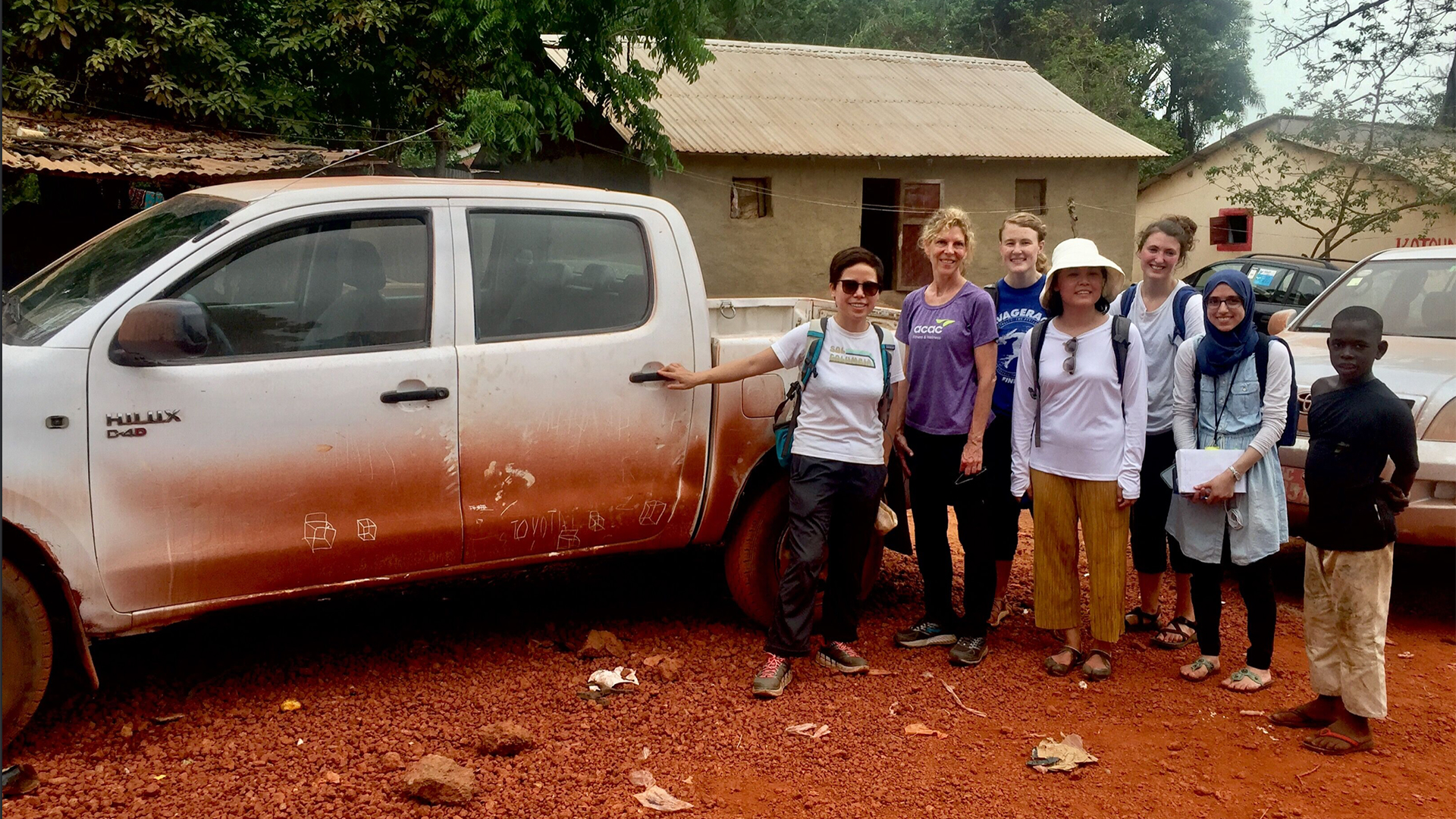In June 2019, a multi-disciplinary group of faculty and students from Maryland Law’s Transnational Environmental Accountability (TEA) Project traveled to Guinea to examine the effects of a Chinese bauxite mine on public health and the environment in West Africa. Lecturer in Law Zhang Jingjing and Public Health Professor Lori Edwards were accompanied by three students from Maryland’s Environmental Law Clinic: 3Ls Sisi Liu, Stephanie Malchine, and Abby Trumpy. The group was accompanied by a representative of Friends of Nature China, a leading environmental NGO based in Beijing.
The trip was designed to assist local non-governmental organizations in Guinea, including AMSP (Association Mines Sans Pauvreté), who have been working for communities affected by a Chinese mining company, SMB (Société Minière de Boké) that owns and operates bauxite mines in Boke, Guinea.
The interdisciplinary team visited five villages around the Boke region where bauxite mining has profoundly affected the local environment. Students collected air and water samples and interviewed villagers on the adverse impacts of bauxite mining on community health.
The group also hosted a workshop on "China in Africa: Investment, Environmental Human Rights Impact, and Laws.” The workshop was the first of its kind held to be held in West Africa and was attended by numerous civil society organizations, scholars, and government officials in Guinea. Professor Zhang discussed China's Belt and Road Initiative, an international development project that now spans five continents, and strategies for holding overseas Chinese companies accountable for environmental and human rights violations. 3L Stephanie Malchine presented her research on bauxite mining, aluminum refining, and their impacts on the environment. Professor Edwards discussed the impact of mining on public and community health.
The trip was the first of what will be a series of field trips and other activities by TEA Project faculty and students to assist NGOs in developing countries in mitigating the environmental and public health impacts of multinational extractive industries.

